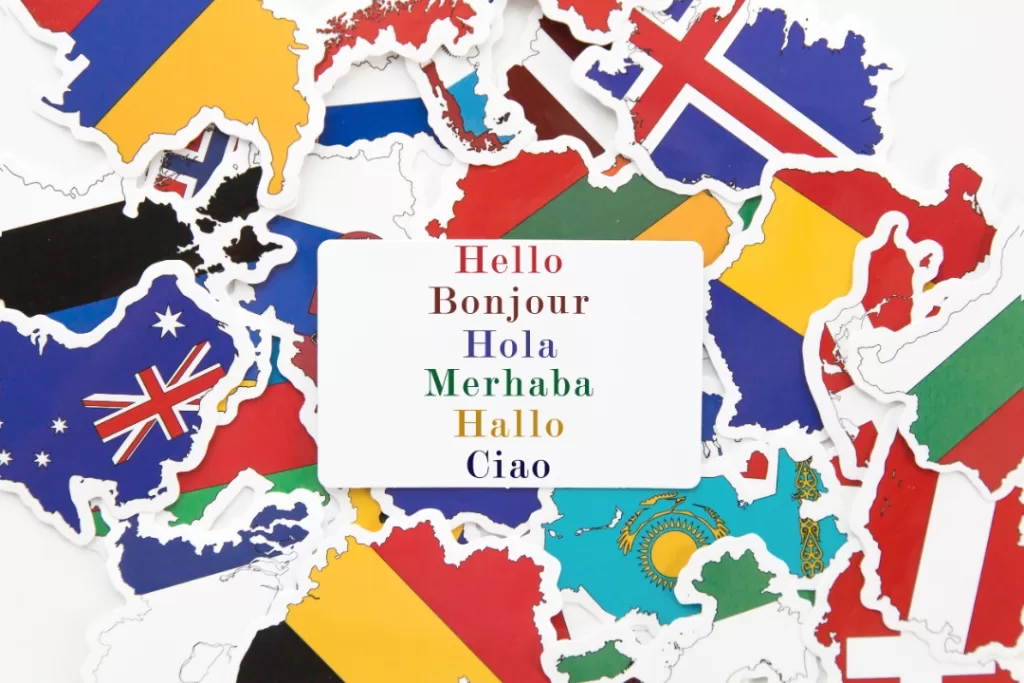Polygots are trending on social media, with many branding them geniuses due to their ability to speak multiple languages. These multilinguists post content of themselves shocking unsuspecting native speakers in other countries, ethnic shops, restaurants, or sites like Omegle.

Polyglots are deemed geniuses due to their mastery over multiple languages.
A polyglot, by definition, is someone who can fluently speak more than three languages. It is a term used interchangeably with “multilinguists”, though, in the case of polyglots, their pursuit of language is not for a specific purpose. They are simply language enthusiasts.
Singapore: A polyglot nation of the past
In the 1960s, when Singapore was still part of the Federation of Malaysia, the nation’s people were naturally multilinguists. It was unsurprising for a Chinese to speak fluent Malay, an Indian to speak Mandarin, and a Malay to converse in Tamil.
The British influence in the region naturally led the multicultural nation to pick up various languages to improve communication and build camaraderie among one another. Mind you, there were no language classes or schools then; people could pick up multiple languages by simply being immersed in a diverse environment.
An element of trust develops when someone speaks the same language as you, so it comes as no surprise that people adapt to the environment they are placed in. This can be clearly seen in the pre-independence days of Singapore. How did people of such diverse cultures and races live harmoniously? The coming together of people can be attributed to the multilingualism of its people and the creative encouragement of local creativity.
Today, it is common for Singaporeans to be “part-time” bilinguals, with most mastering English and a somewhat subpar knowledge of their mother tongue. Some say it is the impact of modernisation, while others attribute it to the loss of one’s native culture. The strong influence of Western societies has indoctrinated and influenced the younger generations into thinking that English is the only way. But that could not be further from the truth. Today, Singapore isn’t just a multicultural nation but a multinational one, becoming a place of belonging for people from every country imaginable. However, the language policies of the past have reduced multilingualism and caused communicative dislocation within families and across generations.

Reduced multilingualism among Singaporeans can be attributed to the government’s emphasis on good English language skills.
However, thanks to these brilliant polyglots and the year that should not be named (circa 2020), knowing and mastering more than just English is becoming increasingly fashionable. There are currently approximately 1.5 billion people learning a new language. These numbers exploded in the week following lockdown, with at least 30 million people signing up to learn a new language.
The mental benefits of being a polyglot
Being a polyglot reaps various benefits to one’s brain; in fact, multiple reports have shown that mastering a new language improves cognitive function and delays brain deterioration and conditions like Alzheimer’s. One report even likened the benefits of learning a new language to exercise for your brain, improving neuroplasticity, thus improving your emotional intelligence and awakening a part of your brain that has been dormant since you were an adolescent. Learning a new language is like an investment for the future; think of it as a cognitive reserve and preservation mechanism of the brain.
Learning a new language is like exercise for your brain, improving neuroplasticity and cognitive function.
Research has shown that the brains of a polyglot or even bilinguals contain more grey matter, making them superior in information processing, retaining memory, and attention management. Various studies have shown that acquiring more than one language changes the brain’s structure, making the individual more flexible to change, with improved adaptation capabilities. Simply put, language acquisition is arguably one of the best anti-ageing strategies for your brain.
The social advantages of a polyglot
If having improved cognitive function and superior brain health is not enough to convince you to learn a new language, the social benefits of a polyglot will. Becoming a polyglot opens doors to new friends, thus expanding your social circle and cultural awareness. A polyglot’s experience in a foreign country is unparalleled to those who do not speak the local language. When travelling, a polyglot can expect a highly immersive experience by interacting with the locals and picking up local knowledge that may be inaccessible to foreigners.
This adds another advantage: polyglots are more aware of other people’s intentions around them in a foreign country. For instance, when you understand the local knowledge, you gain insight into what’s being spoken about you in public (locals by default presume you do not know the language). Additionally, if you speak the language, you are no longer a target, nor are you perceived as vulnerable to those prowling the streets and tourist destinations looking for their next victim.

Tourists who speak the language are less likely to fall victim to scams.
Now, let’s get to the good part: a polyglot expands their dating pool when they have mastery of multiple languages; call it natural selection or survival of the fittest, but being a polyglot can make you seem like the alpha. A survey by the dating app PlentyofFish in 2017 revealed that multilinguists are perceived as more “desirable”. A 2016 survey by a language-learning app also revealed that multilinguists are deemed “sexier”. Imagine doing life with someone who can speak multiple languages; not only will you travel with ease, but you can also be assured that they are mentally capable and mature at handling all sorts of situations (due to the mental benefits previously mentioned).
Call us biased, but everyone here at Lingo agrees that the comprehension of multiple languages makes one seem more approachable, capable, intellectual, and worldly. These traits of a charismatic and sociable person draw people to them.
Polyglots and how they serve the nation and the economy
In 2010, U.S. Secretary of Education Arne Duncan said, “To prosper economically and to improve relations with other countries, Americans need to read, speak and understand other languages.” The importance of mastering additional language has also been pressed in other first-world nations, such as the United Kingdom. There seems to be an increased concern over language skill deficiency across the board, as this increases the risk of reduced diplomatic influences and national security. Subsequently, a demand for polyglots is observed not just in the world of politics but also in the corporate sphere.
We have previously covered how learning new languages can be advantageous when job-seeking and how multilingualism can help in the workplace. If the additional language you have acquired is perceived as an “asset” in your company, your organisation will go out of its way to retain you. This is especially true if you are the personnel assigned to the foreign affairs department, as you are now an irreplaceable bridge bringing two parties together.

Knowing an additional language other than English is highly sought after in the workplace.
A polyglot is usually entrusted as the representative for many organisations when dealing with multinational corporations. It is not just their comprehension of the knowledge but also their enhanced awareness of cultural differences and their social skills which are cherished and sought out by many organisations worldwide.
In the context of Singapore, it is time to revive the multilingual aspect of the country, not just by going back to the roots of our ancestors and their native languages but also the languages of other countries whose companies continue to operate from Singapore. Whilst our comprehension of the English language has made us a powerhouse in the Southeast Asian region, let’s not rest on our laurels; there is always room for improvement, and that improvement is in learning new languages.
We hope that this article has ignited your passion for mastering languages. With endless benefits, perceiving language acquisition as a “superpower” will make it much more exciting. Here at Lingo, we are proud to be the birthplace of polyglots. So, if we have piqued your interest, contact us now to join our community of language enthusiasts. Remember, those who know many languages live as many lives as the languages they know.

